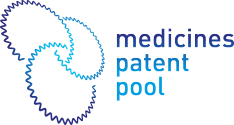Lancet Commission Report on Essential Medicines for Universal Health Coverage: Identifies Positive Role of Patent Pooling and Voluntary Licensing
8 November 2016
Geneva, 08 November 2016 —The Medicines Patent Pool welcomes the report published today by the Lancet Commission on Essential Medicines Policies and its recognition that the MPP model, or a similar approach, could support the international public health commitment to access to essential medicines. The Lancet Commission, a group of 21 independent experts, has produced a timely review of approaches to ensuring equitable access to treatment. It concludes that “there is great potential for expanding access to…new essential medicines through licensing of patents through patent pooling.”
As the report notes, several medicines on the World Health Organization Essential Medicines List, especially new HIV antiretrovirals and curative hepatitis C antivirals, must be made more widely available. This is a particularly acute need in low- and middle-income countries where HIV and hepatitis C prevalence is high.
The MPP, partnering with industry and other stakeholders, has signed licences with seven patent holders for 12 antiretrovirals and one hepatitis C medicine, including nine medicines listed on the WHO’s Essential Medicines List for adults and children of different ages. MPP’s generic manufacturing partners are actively producing these treatments as single formulations and in fixed dose combinations for up to 131 low- and middle-income nations. The MPP has also worked with industry partners to increase the availability of three other essential HIV medicines: darunavir paediatrics, nevirapine and valganciclovir, a treatment for an opportunistic infection.
The Lancet Commission report offers steps towards addressing access to medicines challenges in an effort to successfully meet the UN Sustainable Development Goals, including the right of all to universal health coverage. We look forward to engaging with the Commission experts as well as other public heath actors — governments, the private sector, civil society, patient groups and international organisations – to continue a productive dialogue on bettering health outcomes through promoting the widespread availability of appropriate treatment.







